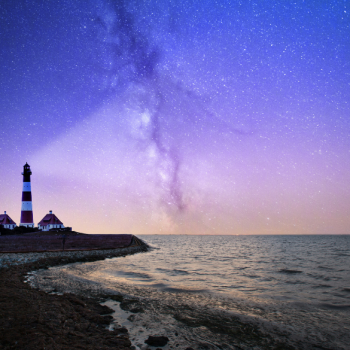Many readers will see the title of this particular column and say, "But the gods have never left!" True enough.
Others will say, "But lots of people have been bringing back the gods for decades now!" Also very true.
And yet, I feel the need to state once again that one of the "points" of modern Paganism is to bring back the gods. No, they haven't gone anywhere, but their absence from widespread human awareness has been a reality, in some cases, for more than a millennium. No, of course, the gods were never entirely forgotten in medieval Europe (where the Christian church was teaching Latin to "barbarians" through reading the Aeneid and Servius' commentaries on it for centuries), but their reality as actual beings with independence, volition, and power was disregarded, downplayed, or demonized in many cases. This is not anything new to most readers of this column, I'm quite certain.
What I am noticing more and more recently, however, is that modern Paganism is being purposefully defined so as to not include the gods. In recent weeks alone: Jonathan Korman has defined "the pagan sensibility" as not necessarily needing to include the gods; John Halstead has discussed the four centers of modern Paganism, but has portrayed the deity-centric forms of Paganism as inherently creedal; and here at Patheos' Pagan Portal, Yvonne Aburrow has defined "theology" as "reasoning about the Divine" rather than "reasoning about the gods," which is not remotely the same thing (on which more will be said in a moment).
For a long time now, I've been hearing modern Paganism characterized as a "nature religion" or an "earth-based religion." That is true to an extent (and in some cases, far less true than others—and not necessarily in a negative sense). However, I suspect a huge reason that it is characterized that way—especially to non-Pagans—is because of fear of being thought foolish or "primitive" for recognizing the gods. We have then internalized that dialogue and have spent lots of virtual and actual ink on determining whether or not one group or another is truly "earth-based," when in fact that understanding in itself might be more of a problem than an accurate portrayal.
I ran directly up against this in Ireland, in the early days of modern Antinoan devotion. In 2002, I asked the university chaplaincy (amongst which I had several friends, including the head Catholic priest and nun) if I could use the college chapel for our most important ritual of the year. At its founding in the early 20th century, the chapel was designated for the college community's religious needs, with no specific religion excluded. The Catholic chaplain was open to my doing so, but said he'd have to run it by the chaplaincy council, made up of clergy of various other Christian denominations.
The council ultimately rejected my request, and told me that I should have the ritual (in late October, in Ireland!) somewhere outdoors, as that is "more appropriate" to people of my religion. But wait: there are no currently known outdoor shrines to Antinous in the ancient world, but a number of temples (i.e., indoor sacred spaces) are certainly known to have existed. (The same is not true of hero-shrines to Polydeukion, but I was not actively worshipping him at the time.) Unfortunately, my preferences and information in this regard were considered irrelevant, because the chaplaincy council knew what was best and most appropriate for "my sort" of people.
This is one instance in which public perception of modern Pagan identity and religiosity interfered with actual practice. The idea of Pagans as "nature worshippers" fits in perfectly with the Christian conception (and, as in my case, misconception) of ancient polytheists as unsophisticated bumpkins with no place in civilized society, and therefore no business doing their rituals indoors.
I have also heard modern Pagans define themselves in a similar way in interfaith contexts, which is—again, I think—a distortion of sorts in order to make the monotheists among such interfaith efforts feel more comfortable. I have met a number of Muslims in my life, and all of them have had no difficulties whatsoever treating me like a perfectly good human being until they find out that I worship a variety of gods. Then, the relationship has shifted to attempts to convince me that my gods are just misleading djinn, and I'm too foolish or selfish to have figured that out. I was very surprised to hear a leading Pagan interfaith activist say that the Muslims he deals with see him as someone who "worships Allah through his works." In other words, he's perceived as a nature worshipper, rather than someone who reveres the gods—or, as is perhaps more appropriately the case for many Wiccans (as this individual is), someone who honors the Goddess and the God. For monotheists, that's still two "false gods," and certainly one divine being too many.





